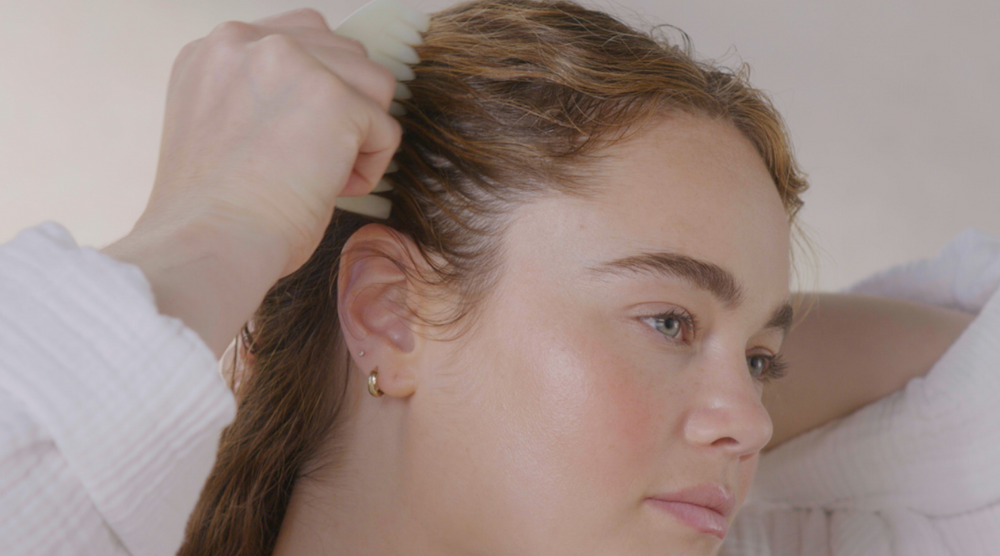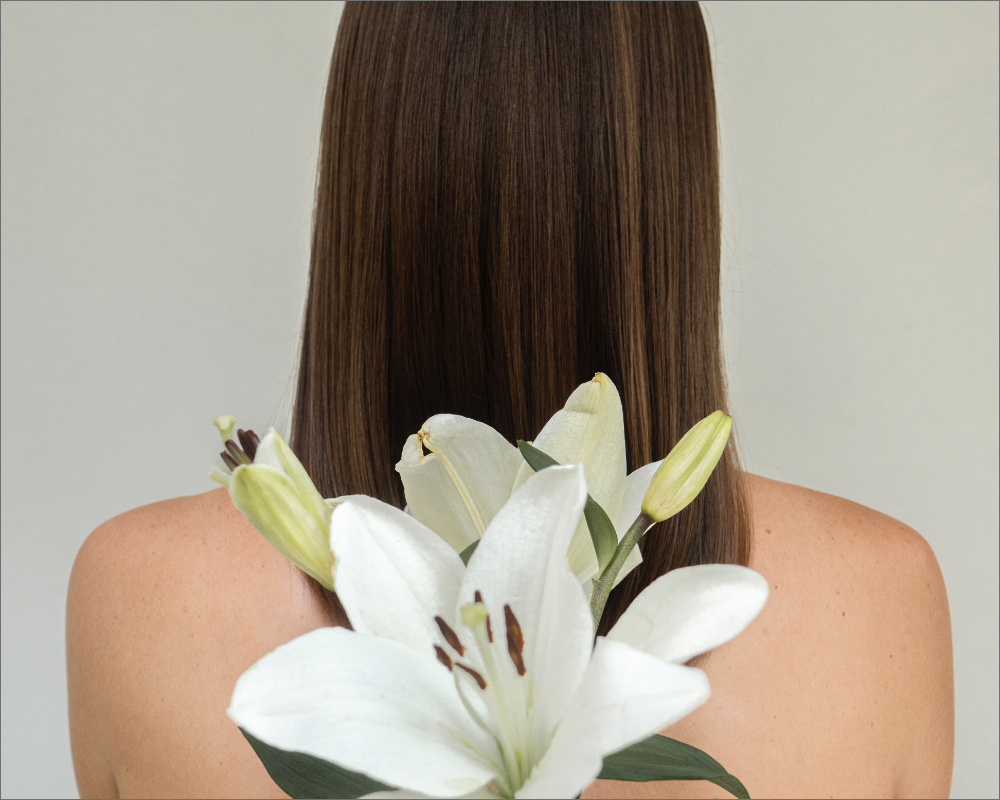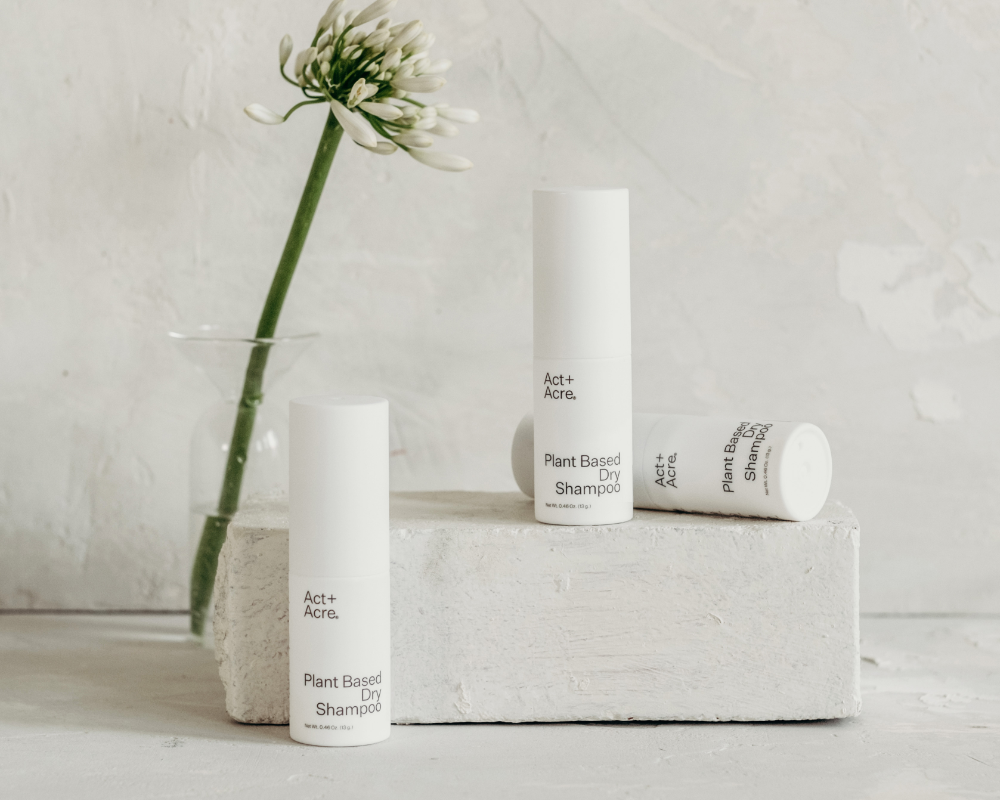How Stress Causes Hair Loss And What To Do About It
How Stress Causes Hair Loss And What To Do About It


It’s no secret that stress can do some weird stuff to us, but did you know that you can actually experience hair loss due to stress? It isn’t always genetic or caused by something physical like most people think. Your environment and stress levels can both play a big part in certain types of hair loss - and let’s face it, the past few years have been pretty stressful for most of us.
So if you’ve been having a tough time and you’re noticing stress-related hair loss, it’s time to take steps to manage it. Thinning hair can be worrying and can affect your confidence, leading to a cycle of stress and hair loss. Let’s take a closer look at stress-related hair loss to help you work out what to do next.
Types Of Stress-Related Hair Loss
Everyone has times when they’re stressed out, whether that’s emotional stress caused by life events or physical stress caused by injury, illness or surgery. While not everyone will experience stress-induced hair loss when they’re overwhelmed, it will affect some people, usually around three months after a stressful event in their life has happened..
There are two types of hair loss that can be caused by stress:
Alopecia Areata - one of the causes of Alopecia Areata is chronic stress, which results in bald patches on the scalp as the body’s immune system attacks hair follicles. It’s an autoimmune condition.
Telogen Effluvium - this is caused by stress or trauma that causes the hair follicles to enter a resting phase. This hair then falls out when you wash or comb your hair, at a higher rate than usual day-to-day hair loss.
Both of these types of hair loss can be temporary and can just be an effect of stress on your hair. Once life is back to normal and your stress levels drop, your hair usually starts to grow back but it’s always worth speaking to a pro and getting checked out.
How Do I Know If My Hair Loss Is Due To Stress?
Hands up if you’ve ever felt stressed? Yep, almost all of us have felt stressed at one time or another. Some of us have got used to running on stress pretty constantly, which isn’t good for our health or wellbeing. Plus this can make it harder to join the dots and realize that your hair loss is all about your stress levels.
If you raised your hand, you’re not alone. Almost everyone has felt stressed at one time or another, and some of us have got used to feeling stressed pretty constantly. That can mean that you might not join the dots and link your hair loss to the way you feel.
Shedding hair daily is normal, so if you’re seeing hair fall when you brush that fits with your normal amount, don’t panic. Most of us shed between 50-100 hairs each day - it sounds like a lot but it’s totally normal. If you feel like you’re losing more hair than this regularly, or the amount you’re shedding is way more than what’s usual for you, take a sec to think about your stress levels. Are you feeling more stressed than usual? Have you felt stressed for a while and maybe not realized?
How To Relieve Stress
The first step is to work out what’s causing your stress. The positive thing about stress and hair loss, once you stop feeling stressed your hair will usually start to grow back. While you can’t always stop the things that are making you feel stressed, you can take some steps to feel better.
By stopping your stress from skyrocketing, you can try and hold it back from affecting your hair. Plus you’ll feel better mentally and physically too. Staying cool and focused in a stressful situation can really help you to feel better all round. Changing your mindset and the way you focus on stress can make it much easier to manage your own wellbeing.
Here are some techniques to help stop your stress levels from climbing:
Short-Term Stress Relief
If you can stop stress in its tracks then this can help stop it from taking hold. Things like yoga and meditation, mindfulness apps, breathing exercises and self-care can all help to minimize your stress and keep it at a manageable level. Accepting that sometimes stressful situations happen without talking yourself out of your feelings can be super helpful too.
Anything that makes you feel good in the short term and helps take your mind off whatever’s stressing you out is the right move. Whether it’s art, music or getting outdoors, do whatever you have to to de-escalate your stress levels. Even just pausing to stretch, laugh and reframe your thinking can be helpful in the moment.
Exercise
It’s a fact that exercise is good for your physical and mental health. It’s also a great way to eliminate stress and increase the happy hormones flowing in your body. This can help regulate your mood, improve blood circulation (which is great for your hair BTW) and keep your body in balance. All of these are perfect ways to help manage your stress and your mood.
As well as skipping on stress, exercise can actually help your hair to grow. It increases oxygen, blood and nutrients to your hair, skin and scalp. This kickstarts the anagen stage of the hair growth cycle, which is when new hair forms. Whether you’re experiencing hair loss or just want healthy hair, regular exercise is good news. You don’t need to go OTT either, a daily walk, dance class, gardening or a hike in nature can all count as great exercise.
Hobbies
Don’t forget how good having hobbies can make you feel. Whether it’s something that’s good for the soul like volunteer work or charity, something that automatically helps with your stress levels like meditation or just something you just enjoy, a hobby can help you feel fulfilled, busy and like you have a purpose - all of which can help you to reduce stress levels. Yoga, meditation, tai chi, breathing exercises or journaling can all support you to feel relaxed.
Group hobbies can be even better for busting stress. Building a community, support network or social group can give you a listening ear as well as a way to enjoy yourself, and take your mind off whatever’s stressing it out right now. Whether it’s a fitness class, networking group or a hobby that you do as part of a team, don’t underestimate how good teamwork can make you feel when it comes to your stress levels. Being part of a community helps stop you from feeling alone.
Diet And Nutrition
A balanced, nutritious and healthy diet filled with whole foods will make you feel and look great. It’s not just healthy for your body or good for your physical fitness either. Eating healthily and drinking enough water can boost your hair growth as well as help you to deal with stress and get enough sleep, which can in turn help you to manage your stress levels. It’s so important to nourish your whole body to stay feeling healthy and positive.
Plenty of whole foods, protein, iron and vitamins are essential for healthy hair and for keeping your body in balance. Vitamins B, C and E are all key for healthy hair and hair growth so try and add these into your diet where you can. If you struggle to get enough nutrition in your daily diet then talk to your doctor about supplements to help boost your health. They can help you to get the right dosage and the right balance in place.
Head Massages
Ever wondered why you rub your temples or scalp when you feel stressed? It’s because it’s soothing and can help you to relax, destress and unwind. Using certain aromatherapy oils - like lavender, ylang ylang or vetiver - to take it a step further and indulge in a full scalp massage to boost your relaxation even further. You can try using essential oils that are said to help hair growth, such as castor oil, peppermint oil, rosemary oil or thyme oil, too.
A head massage helps to boost blood flow and circulation to your scalp and hair. You can even grab a massage tool like Gua Sha to help with your head massage, or book yourself in with a pro for your head massage. If this isn’t an option, then try using firm pressure and a tiny circular motions, gradually moving your fingers up along your hairline with an oil on your hands.
Scalp Detox
Taking care of your own health and wellbeing can be a huge deal for managing stress. Practicing self care, keeping up with routines that make you feel good and taking time out for yourself are all so important for destressing. That could mean booking a spa appointment, taking a bubble bath or elevating your hair care routine with a scalp detox.
To rebalance, remove buildup and restore your healthy scalp, try our Cold Processed™ Scalp Detox. It also helps to stimulate blood circulation and promote hair growth. Simply section your hair, apply 2-3 drops to your scalp, massage and then let sit for 15-20 minutes. Then rinse from your hair, cleanse and condition. You can even use it overnight if you really want to pamper your hair and scalp.
Will My Hair Grow Back?
The good news is that stress-related hair loss is usually only temporary. Once life calms down and your stress feels more manageable, your hair is likely to grow back. It’s sometimes easier said than done but try not to focus too much on your hair as this can lead to a cycle of worry that then slows down your hair’s progress. You should start to see your hair growing back within a few months, but speak to a medical professional if you have concerns.
Working on your overall health and wellbeing is a really important part of growing your hair back after hair loss. This could be using products that are good for your hair and scalp, getting into good habits with your exercise routine or rebalancing your diet. Being gentle with your hair and avoiding damage through too much heat styling, using the wrong products and skipping harsh ingredients are also important for optimum regrowth.
Closing Thoughts
Stress is a normal part of life, and is something that most people experience at some point. While stress related hair loss can be worrying and can affect your confidence, it isn’t usually permanent. Getting to grips with how you manage stress is the best thing you can do for your mind, body, spirit and your hair.
There’s a ton of things you can do every day to keep your stress levels low, including: exercise, meditation, self care, working on a healthy diet, building up a support network and getting a full night's rest. Whatever’s stressing you out, there are ways that you can handle it so that your health - one of the most valuable things to most people - isn’t impacted. Take care of yourself, think positive and try not to overthink the stresses of everyday life.
Ready for a routine that nourishes and cares for your hair? Shop our hair and scalp routines now.








